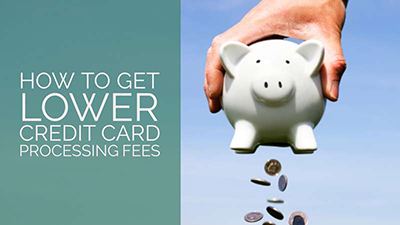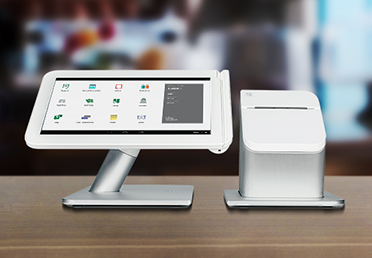Understand Credit Card Processing Fees

How Can You Tell If You’re Getting a Good Deal on Your Credit Card Processing Fees?
If you’re a business owner looking for a good deal on credit card processing fees, the quotes you get may seem complicated at first.
The credit card processing fees you pay can have a big impact on your bottom line. That’s why it’s important that you understand how credit card processing fees work, what your actual processing costs are, and how you can get the best deal on credit card processing fees and save yourself some of your hard earned money.

Credit Card Processing Fees – An Overview
Not all credit card processing fees are negotiable.
The rate that you pay to process a credit card transaction is a combination of base or wholesale costs and other incidental fees which you may or may not be charged, depending on which credit card processing company you choose.
Base costs should account for the largest portion of your credit card processing fees (about 75% – 80%) followed by other or incidental fees (about 20% – 25%)..

Base Credit Card Processing Fees
Base credit card processing fees are made up of interchange and assessment fees and they’re the same for all processors. No processor can give you a lower rate or a better deal on these base costs.
These fees may also be referred to as “wholesale” fees. Wholesale fees are the wholesale cost of your sales transactions. These fees are determined by the credit card issuing bank and the credit card associations (Visa, MasterCard, etc.).
They are consistent regardless of which provider you choose. In other words, there is no point in shopping around for lower wholesale rates from a variety of credit card processors. As they don’t control the base rates, all the base rates will be the same regardless of which credit card processor you choose to use.
The most common base fees that you will encounter as the owner of a merchant account are Transactional Fees and Monthly Flat Fees.
➤Transactional Fees
These fees are assessed every time you process a transaction. They represent the biggest cost of owning and operating a merchant account.
➤ Interchange Fees and Assessments
Interchange fees account for the largest portion of credit card processing expense and it’s paid directly to the card-issuing banks. Your credit card processor and the card brands (Visa, MasterCard, and Discover) don’t get any revenue from interchange fees.
➤ How Interchange Fees Are Set
The major banks who are the stakeholders of Visa, MasterCard and Discover, set the Interchange Fees by deciding how much they want to charge when you (the merchant) accept their credit cards.
In establishing Interchange Fees (also known as the Interchange Rate) the banks consider things like:
➢ Processing method (swiped card, keyed in card number, e-commerce),
➢ Card type (rewards, business, consumer / also called ualified and Un-qualified cards),
➢ Your business type (merchant category), as well as other variables to create a list of interchange fees.
Most Interchange Fees consist of two parts: a percentage of the transaction amount as well as a transaction fee. For example, 1.51% plus $0.10 is the current Visa interchange fee for a swiped consumer credit card.
As a general rule, the Interchange Fee is higher for premium cards (or non-qualified cards) than for standard cards (also called qualified cards). Likewise, Interchange Fees are typically lower when the transaction is conducted face to face rather than when the card is not present, for example over the phone or internet, as the risk of fraud is higher when the transaction is not face to face.
➤ Assessment Fee
Visa, MasterCard and Discover also earn money by charging an Assessment Fee on every transaction in which one of their credit cards is used. Like Interchange Fees, Assessment Fees are exactly the same for all credit card processors and no processor can give you a lower rate or a better deal on the Assessment Fee.
Assessment Fees are typically based on a percentage of the total transaction volume for the month. Each card association publishes their interchange and assessment fees online (e.g.Visa, MasterCard, Discover, American Express). Remember, these are the wholesale rates.
➤ Markup Fee
Your markup fees are the fees charged by your credit card processor for acting as your middle man. With the right processor, like First Data, these fees will be modest. With the wrong processor – you could be subjected to fees that will make a significant dent in your bottom line.
If you are on an interchange-plus pricing structure (also known as a Cost Plus fee structure), your processor will charge you something like (.25% + .10). That is the amount that they will add to the wholesale rate that they are charged. In other words, that is their markup.
If you’re on a tiered pricing plan, you’ll be charged according to the rates applicable for Premium (also called Non-Qualified), Business or Standard (also called Qualified), rates Those quotes have the profit margin built right into the rate.
You should be aware that some credit card processing companies make it difficult to understand how much markup they are charging. They include confusing terms and pricing models in their monthly statements, making it next to impossible to understand what you’re really paying.
Be careful of processors who promise unbelievably low rates. These rates are just that – unbelievable.
What these processors do, is promise a low rate, but what they don’t tell you is that the low rate will only be applicable for an extremely low percentage of your transactions. The fact is, they will add on significantly higher rates for most of your transactions (charging very high rates for rewards cards for example). The bottom line is, while you expect low rates, in the end you’ll actually wind up paying significantly more.
Markup fees are different from processor to processor and this is what you should really be comparing when shopping around for new merchant account.
If you need help understanding your monthly statement – we’ll be happy to help.

Other Incidental Fees
Incidental fees only appear per incidence or occurrence. For example, in the event of a chargeback, you will be charged a chargeback fee. Some months you may not have any chargebacks, and, therefore, the fee will not be charged.
➤ Terminal Fee
These are charged to merchants who have physical stores, where they directly swipe a customer’s card. If you run a business online, you will not have to worry about this. Most reputable providers like First Data will encourage you to buy your machine outright for a low one-time fee rather than lease it or rent to own. Buying your machine can save you literally thousands of dollars in the long-run.
➤ Payment Gateway Fee
These are similar to terminal fees, but they are applied to E-Commerce businesses instead. E-Commerce merchants may be charged both a monthly gateway fee and a per-item (per-transaction) gateway fee. Every E-Commerce merchant needs a payment gateway, which links their online shopping cart to their merchant account.
➤ PCI Fee
You may see a monthly — or yearly — “PCI Fee” on your statement. These are fees paid to the Payment Card Industry for the purposes of security and fraud prevention. Some merchant account providers have not yet started charging a PCI fee. Those that do, typically charge $5 to $10 per month — or up to $99 per year. This fee covers the cost of conducting review functions to help them ensure you are security and fraud prevention compliant.
➤ Annual Fee
These fees may be charged once a year to cover the basic use of a provider’s services. Be aware that this is usually a cash grab and a fee which you should not have to pay. Most of the better merchant account providers will not charge it.
Merchants should view this fee as a red flag about how the merchant account provider views its business relationships.
➤ Monthly and Statement Fee
These fees may charged each month, usually for the purpose of covering call centre costs, or the cost of printing and mailing your credit card statements. Some merchants bypass these costs by relying on electronic bill statements, but others may pay as much as $15 a month for miscellaneous processing costs such as statement fees.
➤ Monthly Minimum Fee
These fees may be charged to merchants who process less than a certain amount per year or who have a fluctuating monthly card volume. The minimums will vary by provider, but most of them start if you process less than $50,000 a year.
➤ Online Access Fee
Many merchants prefer to view their monthly statements online, versus waiting for them to arrive in the physical mail. Some merchant account providers charge for this convenience, while others offer it for free.

Other, Infrequently Charged Incidental Fees
You may encounter the following fees very infrequently, they are usually one off instances.
➤ Address Verification Service Fee
If you have an e-commerce or telephone order business, you should be aware of the AVS fee. It will be charged on every single transaction. For retail businesses or businesses in the hospitality industry (like hotels) that occasionally key-in card information, you don’t need to worry about it as much.
➤ NSF Fee
If you don’t have enough funds in your bank account to cover your merchant account expenses, you will be assessed a NSF (non-sufficient funds) fee.
➤ Retreival Request Fee
Every time a customer initiates a dispute on a charge from your business, it sets into motion the chargeback protocol. This retrieval request is the first step. The fee covers any expense related to the retrieval request.
➤ Chargeback Fee
After the retrieval request, an actual chargeback may take place depending on the circumstances. If it does, expect a chargeback fee to be levied fee on top of losing the money from the sale.
➤ Voice Authorization Fee
You may occasionally may be required to call a toll-free number in order to verify certain customer information before a transaction is authorized. This fee is related to such an occurrence, although it is not charged by all processors.
What’s Important To Remember
You should understand the following points with respect to fees
Every Merchant Account Provider pays the same Interchange Rates and wholesale fees. Don’t let a salesperson try to convince you that their company pays less and that they can pass on these savings to you.
Merchant account providers can make higher profits on the monthly and annual fees than on the actual card processing. Be careful when exceptionally low processing fees are offered as this may be a sign that the merchant account provider plans to make money on monthly and annual fees instead. Always view monthly and annual fees as negotiable.
Fees can change anytime. A merchant account provider’s “terms and conditions” allow the provider to change existing fees or impose new ones. Typically such changes will be communicated to you by mail, so make sure that you always open and read all correspondence sent to you by your merchant account provider.
Finally, if you’re confused about your credit card processing statement, send it to us, and we’ll review it for you – for free.
What You Get
Scalable Solutions For Every Business
Stress-Free Setup
By Your Side 24/7
Canada First Makes It Easy To Accept:

Let's Work Together
Get in touch and ask us for a quote or ask a question about what solution is best for your business. Call us at 888-616-6967 or click to send an email. We’re here to help.



